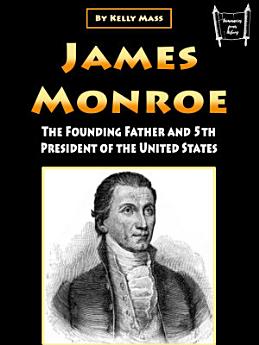James Monroe: The Founding Father and 5th President of the United States
About this ebook
The Northern Neck region of Virginia where Monroe spent his formative years was already legendary as the birthplace of great American leaders, having produced George Washington, Robert E. Lee's family, and numerous other figures who would play significant roles in the founding and early development of the United States. This environment of political awareness and public service created a culture that encouraged young men of talent and ambition to pursue careers in public life while instilling values of honor, duty, and civic responsibility that would guide Monroe throughout his long career in national politics. The combination of modest family circumstances and exposure to political greatness taught him both humility about his origins and confidence in his ability to rise through merit and dedication.
Monroe's early education began with private tutors, as was customary for Virginia planter families, and continued at the small academy conducted by Parson Archibald Campbell, where he received the classical education considered essential for young gentlemen of the eighteenth century. His studies included Latin, Greek, mathematics, and moral philosophy, providing him with the intellectual foundation necessary for leadership in a society that valued classical learning and expected its leaders to be conversant with the wisdom of ancient republics and the principles of natural law. The emphasis on rhetoric and oratory in his educational program would later serve him well in his diplomatic and political careers, while his exposure to classical political theory shaped his understanding of republican government and the challenges facing democratic institutions








